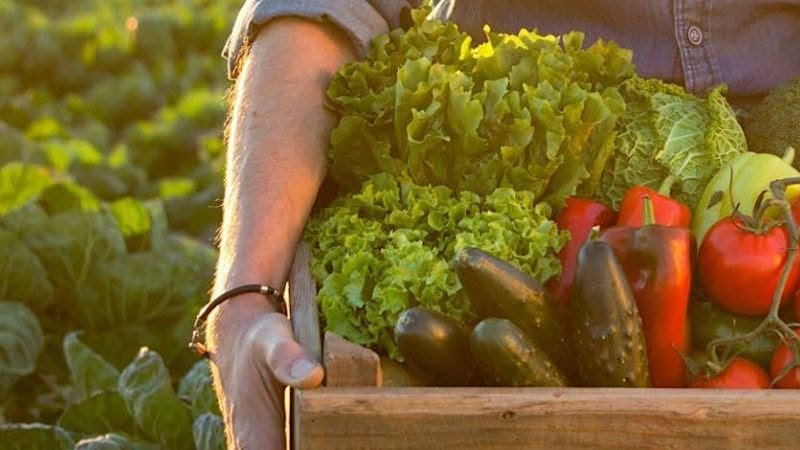In an era where sustainability is more crucial than ever, the agricultural sector stands at the forefront of efforts to reduce waste and enhance efficiency. As global populations rise and resources become increasingly strained, implementing effective waste reduction strategies in agriculture is not just beneficial—it’s imperative. This blog post explores practical approaches and innovative strategies for minimizing waste and improving agricultural practices.
1. Adopt Precision Farming Techniques
Precision farming, also known as precision agriculture, is a transformative approach that uses technology to optimize field-level management regarding crop farming. By leveraging GPS, sensors, and data analytics, farmers can make informed decisions about planting, fertilizing, and harvesting. This targeted approach ensures that resources such as water, fertilizers, and pesticides are used more efficiently, reducing excess application and minimizing waste.
For instance, soil moisture sensors can provide real-time data on soil conditions, allowing farmers to water crops only when necessary. This reduces water wastage and improves crop yields. Similarly, variable rate technology can adjust the amount of fertilizer applied based on soil nutrient levels, ensuring that crops receive just the right amount of nutrients.
2. Implement Integrated Pest Management (IPM)
Integrated Pest Management (IPM) is a holistic approach to managing pests that minimize the use of chemical pesticides. IPM combines biological, cultural, physical, and chemical methods to control pest populations in an environmentally and economically sustainable manner.
By using IPM strategies, farmers can reduce the amount of pesticides used, which not only cuts down on chemical waste but also lessens the impact on non-target organisms and the environment. Techniques such as crop rotation, planting pest-resistant varieties, and encouraging natural predators can significantly reduce the need for chemical interventions.
3. Promote Crop Rotation and Diversification
Crop rotation and diversification are traditional practices that continue to offer substantial benefits in modern agriculture. By rotating different crops in a planned sequence, farmers can improve soil health, reduce pest and disease pressure, and enhance nutrient cycling. This practice helps in reducing the need for synthetic fertilizers and pesticides, which in turn minimizes waste and environmental impact.
Additionally, diversifying crops can reduce the risk of total crop failure due to disease or pest outbreaks, ensuring a more stable and sustainable food supply. This approach also contributes to better land use and can lead to more resilient agricultural systems.
4. Utilize Composting and Organic Waste Management
Composting is an effective method for recycling organic waste and turning it into valuable resources for soil enrichment. By composting plant residues, manure, and other organic materials, farmers can create nutrient-rich compost that enhances soil structure, improves water retention, and reduces the need for synthetic fertilizers.
Organic waste management not only helps in reducing waste but also supports a circular economy within the farm. Farmers can close the loop by using compost to replenish soil nutrients, thereby reducing reliance on external inputs and promoting sustainable agricultural practices.
5. Optimize Resource Use Through Technology
Technological advancements present several opportunities to minimize waste in agriculture. For instance, automated irrigation systems equipped with moisture sensors and float switches ensure precise water application, delivering hydration exactly where and when it’s required. Drones and satellite imagery further contribute by offering detailed crop health data, enabling farmers to tackle potential issues before they become significant problems.
Additionally, farm management software helps track resources, manage inventory, and plan crop rotations efficiently. By incorporating these technologies into their practices, farmers can boost efficiency, cut down on waste, and enhance overall productivity.
6. Focus on Post-Harvest Management
Effective post-harvest management is crucial for reducing waste and ensuring that agricultural products reach consumers in optimal condition. Proper storage, handling, and transportation of crops can significantly reduce spoilage and losses. Investing in appropriate storage facilities, such as refrigerated warehouses for perishable goods, can help maintain product quality and extend shelf life.
Additionally, educating farmers on best practices for post-harvest handling and implementing quality control measures can further minimize waste and improve the efficiency of the supply chain.
7. Encourage Sustainable Practices and Education
Educating farmers and agricultural workers about sustainable practices and waste reduction strategies is essential for achieving long-term improvements. Training programs, workshops, and extension services can provide valuable information on the latest technologies, methods, and best practices.
Promoting awareness about the environmental and economic benefits of waste reduction can inspire more farmers to adopt sustainable practices. Collaborative efforts between government agencies, agricultural organizations, and the private sector can also support the widespread adoption of effective waste-reduction strategies.
Conclusion
Reducing waste in agriculture is a multifaceted challenge that requires a combination of innovative strategies and traditional practices. By adopting precision farming techniques, implementing integrated pest management, promoting crop rotation, utilizing composting, optimizing resource use through technology, focusing on post-harvest management, and encouraging education, farmers can significantly reduce waste and enhance the efficiency of their operations.
As the global demand for food continues to grow, embracing these effective strategies will be crucial for ensuring sustainable agricultural practices and securing a more resilient future for agriculture.


